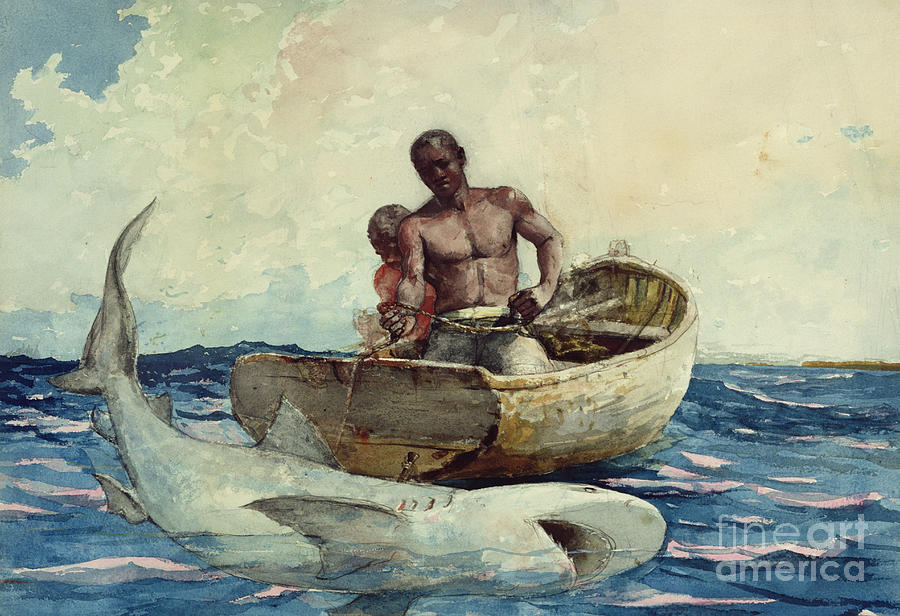Day 3 Description
On Day 3, students will analyze and discuss one final poem as a warm-up activity, take a quiz on literary terms reviewed in the past 2 class periods, participate in a seminar discussion of the history and poems studied, and write a short reflection on their work during the unit thus far.
Essential Questions
- How has the violent history of the Caribbean influenced its contemporary representation in art and literature?
- How do poets use literary techniques such as metaphor, imagery, diction, and allusion to convey a message or theme?
- To what literary tradition does Caribbean literature belong? Why does this matter?

Learning Goals
- Review literary terms in preparation for poetry analysis.
- Acquire knowledge about Caribbean history and the transatlantic slave trade.
- Analyze a text for literary techniques and themes.
Agenda
- Warm-up
For a warm-up activity, students will independently annotate and respond to guided questions on a final example of Caribbean poetry (“Islands” by Derek Walcott). After providing students with 5-10 minutes of individual work, teacher will lead the class in a discussion and analysis. - Quiz: Literary Terms and/or Caribbean History
As an optional assessment, students will take a quiz on literary terms and/or a short quiz assessing several of the key historical ideas discussed in the last 2 class periods. Note that there are two versions of the quiz provided in the “Literary Terms Quiz” document below–one multiple choice version and one fill-in-the-blank version–to allow for differentiation. - Seminar Prep: Small Group Discussion
The teacher will provide students with 5-10 minutes to discuss their responses to the seminar questions (homework for Day 2) in small groups of 3 or 4. The teacher will emphasize that EACH student is expected to contribute AT LEAST once to the seminar discussion and MUST have an example of textual evidence (from one of the poems or guided notes studied) to support their point. - Seminar: Caribbean Poetry (approx. 40 minutes)
The teacher may choose 1 of 2 formats in which to organize the seminar:1. fish bowl seminar — Using the “fish bowl” or “inner circle/outer circle” method, the teacher will assist students in arranging the desks in 2 concentric circles, the small of which (placed in the middle of the class) will contain approximately one third of the students. In a fish bowl seminar, students in the inner circle speak freely about the questions amongst themselves. During this time, students in the outer portion of the circle take notes and do not speak (they may work on filling out the “Day 3 Poetry Seminar Notes Handout”). After 5 or 10 minutes (at the teacher’s discretion), students in the outer circle may “tap in” by tapping a student on the inner circle on the shoulder to trade seats and take their place. The roles are then reversed. The seminar continues at least until every student has the opportunity to speak and remain in the circle for 5-10 minutes consecutively.2. whole group seminar – In this seminar format, the entire class forms one large circle and discuss the questions as a whole class. I strongly recommend having a prop (like a stuffed animal or soft ball) to students to throw to each other to indicate whose turn it is to speak. Think “conch” from Lord of the Flies! In any case, the teacher ought to impose some system for speaking turns, otherwise things can get chaotic fast!Expectations for Seminar
1. All students speak at least once.
2. When someone is speaking, you listen.
3. When you speak, have textual evidence or specific examples to support your point. - Writing Response
An optional writing response to give students as homework or to complete in class (if time) is included below. It asks the students to expand upon their ideas to one of the seminar questions by writing a response of AT LEAST one paragraph to the question below:How is the Caribbean described in the poems? How is the idea of “place” important to understanding them? Think about some of the literary techniques we’ve discussion: diction, imagery, allusion, tone, rhyme, among others…
Materials
- Day 3 Warm-Up
- Day 3: Caribbean Poetry PowerPoint
- Literary Terms Quiz
- Caribbean History Quiz
- Day 3 Seminar Questions
- Day 3 Poetry Seminar Notes Handout
- Day 3 Writing Response (optional)
Navigation Menu
- Deeps Home Page
- Project Home Page
- Essential Questions, Learning Goals, & Standards
- Day 1
- Day 2
- Day 3
- Assessment Suggestions
How to cite these resources: “’Expanding the Atlantic’ for World Literature Classrooms,” written and designed by Savannah Windham, The Black Atlantic Pages, The Black Atlantic Blog, Duke University, http://sites.duke.edu/blackatlantic/ (accessed on (date)). – See more at: http://sites.duke.edu/blackatlantic/sample-page/expanding-the-atlantic-for-world-literature-classrooms/.